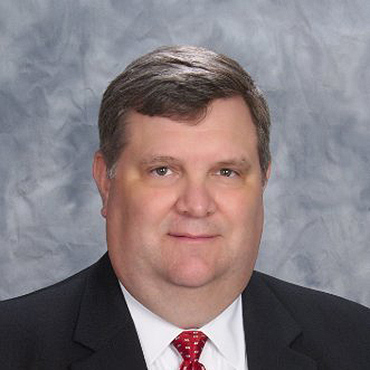Getting back to the acquisition basics
Dispensing with regulations that slow the process and hinder agility should be central to any reforms, says industry lobbyist Trey Hodgkins.

ITAPS Senior Vice President Trey Hodgkins says that administration officials have reached out to discuss possible procurement reforms.
The good old days of federal procurement might be worth revisiting, and that's not just a nostalgic haze induced by the troubled launch of HealthCare.gov. Such a Back to the Future moment could be in the offing as early as next week, if President Barack Obama addresses the arcane topic of IT acquisition in the very public forum of his State of the Union address.
Some federal procurement practices from a decade or so ago that worked reasonably well have run aground as federal agencies have piled on more regulations, ITAPS Senior Vice President Trey Hodgkins said at a Jan. 23 press briefing in Washington, the first since his team left TechAmerica for the newly formed public sector group at the Information Technology Industry Council.
HealthCare.gov's troubles, said Hodgkins, could provide a unique opportunity to get at some of the complexities of federal IT procurement reform. He said his group have been talking with the White House about federal acquisition reform issues in the wake of the website's woes and the run-up to the Jan. 28 State of the Union address.
Hodgkins said the White House Office of Federal Procurement Policy and Federal CIO Steven VanRoekel reached out to industry organizations just before Christmas to discuss some of the more immediate reforms that could be made in federal IT procurement.
"There's a strong possibility that the president will reference" procurement reform in the State of the Union, using HealthCare.gov as an example to illustrate both short-term fixes and a long-term overhaul of the sometimes creaky acquisition rules. There is also a possibility that the president will suggest some kind of immediate action be taken, including issuing an executive order or acting through the CIO Council, Hodgkins said.
There is certainly no shortage of ideas floating around, and Hodgkins and the ITAPS staff outlined some at the Jan. 23 briefing.
The practice of buying off-the-shelf commercial IT products and services, while still allowed, "has eroded" severely over time, making such purchases increasingly complicated since the last round of procurement reform in the 1990s, Hodgkins said.
Another reform, which could take more time, is rationalizing oversight of the acquisition process. "There are multiple entities looking at the same thing," Hodgkins said.
Emphasis on building better IT knowledge into the federal acquisition workforce, including how to decide on and manage increasingly complex technologies, he said, should be central in any reform effort.
In the longer term, Hodgkins said, establishing a more meaningful and comprehensive IT program management career path and incentivized management within the government could pay dividends in scheduling, costs and performance.
Providing more flexibility in enabling technology investment options -- which boils down to shortening acquisition time lines for quickly advancing technology -- would also help.
Alongside Hodgkins at the ITAPS briefing were Erica McCann, manager of federal procurement, and Pamela Walker, federal homeland security director. McCann handles federal procurement policy at ITAPS, while Walker handles homeland security and defense policy. ITAPS is a separate division of ITI with separate membership rolls, said Hodgkins. It currently has six member companies.
Last fall, TechAmerica filed suit against ITI and three of its former senior public procurement lobbyists after they left for ITI to form ITAPS. Trey Hodgkins, Walker and Carol Henton were named in the suit. McCann was not. Carol Henton, according to Hodgkins, works for ITAPS on the West Coast, focusing on state regulation.
A litigation conference is set for Feb. 7 in the case, said Hodgkins. "We have members and momentum," adding that his new organization has faced no difficulties in reaching out to industry and potential members in the wake of the suit.





